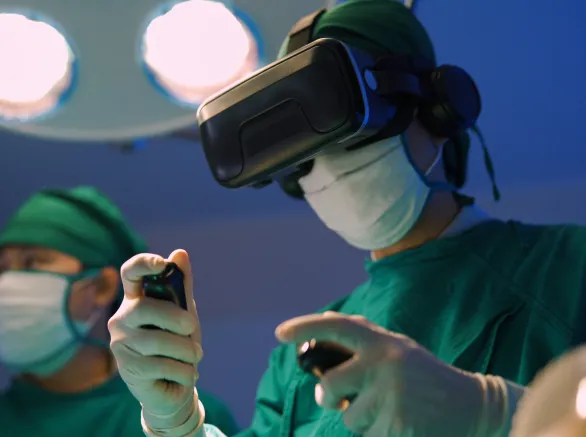

- Ph.D., Applied Physiology, Georgia Institute of Technology, 2017
- M.A., Secondary Curriculum and Instruction, University of Colorado, Boulder, 1994
- B.S., Biomedical Engineering, Boston University, 1988
- Associate Safety Professional (ASP)
- Certified English XL Tribometrist (CXLT) (GA)
- Certified Safety Professional (CSP)
- University of Colorado Health Sciences Medical School, 1997-1998
- Human Factors for Medical Devices training program, AAMI University, 2022
- Academic Professional, Neuroscience, Georgia Institute of Technology, 2017-2019
- Program Instructor, Anatomy, Physiology & Medical Ethics, Duke TIP, 2015
- Science Teacher, Grandview High School, 1998-2012
- Science Teacher, Prairie Middle School, 1992-1998
- NIH Fellow for Prosthetics and Orthotics Research Training, 2013-2016
- Georgia Institute of Technology Presidential Scholarship, 2013-2017
- Colorado Teacher of the Year, Semi-Finalist, 1998
- Human Factors and Ergonomics Society, 2019-present
- Society for Neuroscience, 2015-present
- Board of Certified Safety Professionals, 2021-present
- Association for the Advancement of Medical Instrumentation (AAMI), 2022-present
Dr. Lawson is an expert in human perception and cognition, cognitive and motor skill development, and the influence of training, prior knowledge, and environmental factors on decision-making and behavior. She has extensive experience designing and conducting user studies, as well as evaluating warnings and safety information, for consumer products and medical devices in alignment with regulatory agencies such as FDA, IEC/AAMI, ANSI, and CPSC. Dr. Lawson applies her expertise in litigation matters, evaluating human factors aspects in incidents involving motor vehicles, pedestrians, consumer products, medical devices, and industrial equipment. Her work addresses a broad range of human factors and performance issues, including hazard identification, accident analysis, product-user interaction, and risk assessment, ensuring that safety information and product design are both effective and compliant with applicable regulations and guidelines.
Dr. Lawson investigates human factors and human performance issues in a wide variety of contexts including product warning and safety information; hazard identification involved with slips, trips and falls; response during emergency situations; motor vehicle and pedestrian accidents; evaluation of consumer, medical device, and industrial product interactions. Dr. Lawson has worked with medical device manufacturers at various stages of the product lifecycle, including conducting formative testing and focus groups during the design phase, evaluating use-related risk analyses, preparing, executing, and reporting results for summative human factors validation testing, and performing post-market surveillance activities such as focus groups and field observation. She, similarly, works with consumer product manufacturers assessing usability, performing use-related risk assessment, and evaluates the adequacy of instructions and warnings. She is skilled in a variety of methodologies for assessing usability, including surrogate and user studies, focus groups, surveys, video analysis, standards compliance analysis, injury database analysis, tribometry, and accident reconstruction.
Before joining Exponent, Dr. Lawson completed her graduate studies as a Graduate Research Assistant in the Cognitive Motor Control Laboratory at Georgia Institute of Technology. Her research work, under a National Institutes of Health Fellowship for Prosthetics and Orthotics, identified neurobehavioral measures predictive of motor skill learning and subsequent ability to transfer motor skills to novel situations. Dr. Lawson's research studied how the quality and speed of movements change during motor learning with specific assessment of concurrent changes in the visual and motor systems. Dr. Lawson has also provided consultation on projects examining visuomotor changes associated with dehydration and with child motor skill development.
After completing her degree, Dr. Lawson joined the faculty at Georgia Institute of Technology as a founding member for the undergraduate neuroscience program, providing expertise in the cognitive, perceptual, and decision-making aspects of the program. Dr. Lawson's 25 years of experience in education provides valuable insight into approaches for the delivery of instructional materials and training, child, adolescent, and older adult cognitive and motor developmental abilities and limitations, including situational awareness and decision-making with medical devices, consumer and industrial products, vehicles, warnings and instructions, and the environment. Dr. Lawson is also a Certified Safety Professional, a certified tribometrist and has AAMI training for conducting medical device human factors validation testing and preparing HFE/UE reports suitable for submission to the FDA.
